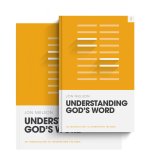The Book of Judges is very old, and the Song of Deborah may be the oldest surviving piece of Israelite literature. It uses some of the most archaic forms of Hebrew, and was likely composed in Canaanite before Hebrew became a defined dialect as this issue of dialect was part of the division between the Israelites during the battle between the Gileadites, east of the Jordan, and the Ephraimites from west of the Jordan. There is evidence that the book was either assembled or redacted in the Kingdom of Samaria. The region of the book also generally corresponds with the territory of the northern kingdom, both the region that had once been under Egyptian authority west of the Jordan, and the region east of the Jordan which had generally been independent of Egypt.
The synchronizations between the Book of Judges and the records of Egypt are far too many to be overlooked or ignored. As almost all denominations of Christians and Jews agree that King Saul established his kingdom in 1037 BC, and the Septuagint's version of Judges includes 460 years of the land being ruled by Judges, or foreign kings, followed by an era of chaos when there was no king, the latest possible date the Exodus could have taken place was the 1500s BC, which supports the idea that the 10 plagues of Egypt were descriptions of the fallout and effects of the Minoan eruption which Egyptologists date to 1550 BC. According to Judges, 42 years later the Israelites invaded Samaria, (northern modern Israel and the Palestinian West Bank) under the leadership of Joshua, which would have been 1508 BC. The plan was already laid out in the Book of Joshua to occupy the entire land of Canaan, yet just three years later, when Joshua was 85 years old, the Israelites stopped their campaign, after having only occupied the cities in Samaria, this would have been in 1505 BC.
The reason they stopped their invasion is not given, however, Egyptian records do explain it, as in the same year, 1505 BC, Pharaoh Thutmose I marched his army through Canaan to reconquer it for the Egyptian Empire. It had previously been under the control of the Hyksos Dynasty whose empire collapsed in the aftermath of the Minoan eruption. In 1550 BC, the Hyksos capital fell to the rival southern dynasty of Pharaoh Ahmose I, and the Hyksos retreated to their fortress of Sharuhen, near modern Gaza in the Palestinian Gaza Strip. This suggests the Hyksos maintained control over Canaan until Sharuhen fell to Ahmose I in 1540 BC. Ahmose I led an invasion of southern Canaan a few years later in an attempt to root out any remaining Hyksos. Egyptologists are not sure when this campaign was, placing it sometime between 1537 and 1527 BC. This campaign is not believed to have reached farther north than Byblos, in modern Lebanon, and did not result in any long-term political control over Canaan. Ahmose I's main goal seems to have been to destroy any remaining Hyksos in the region to ensure they did not try to recapture Egypt.
Trustpilot








